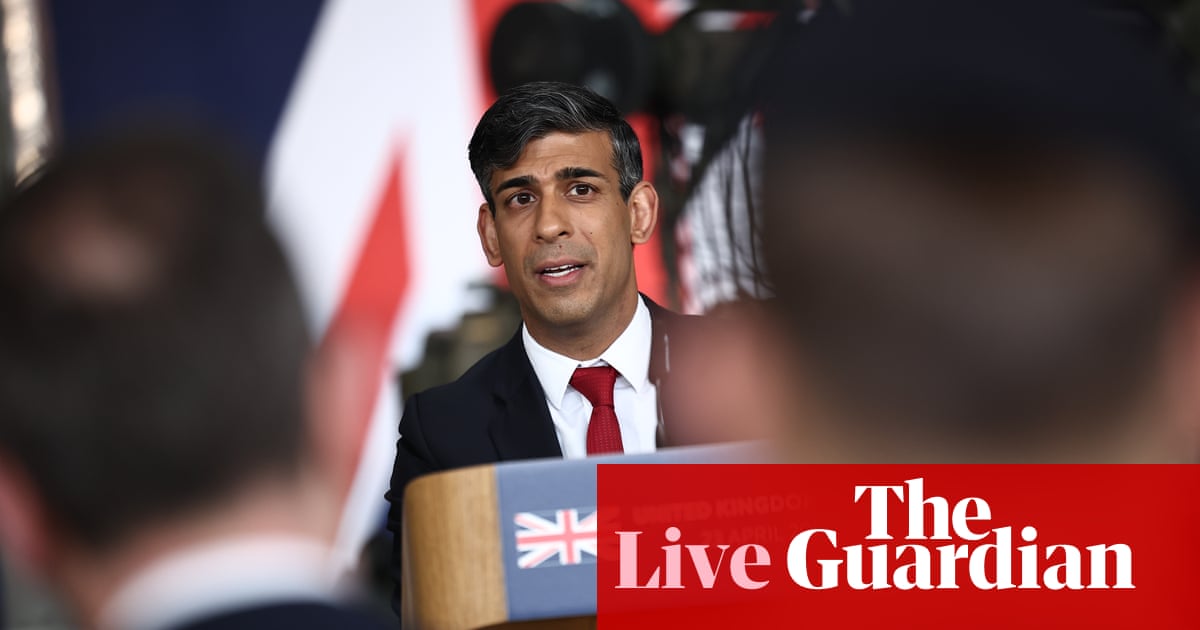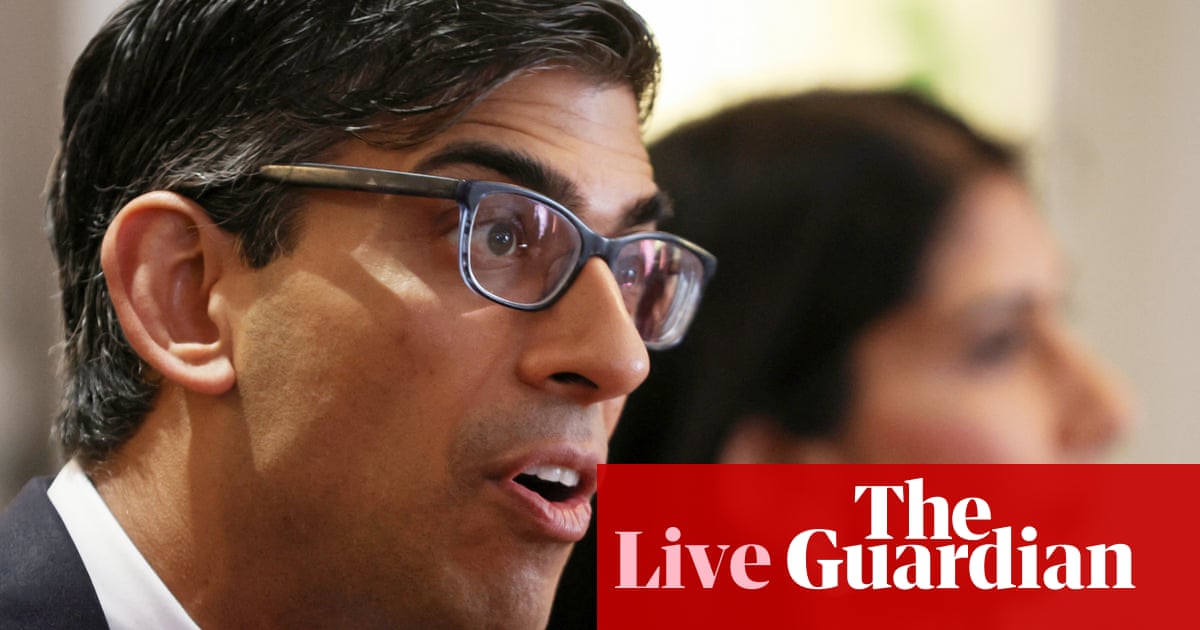
Rishi Sunak has been accused of going “missing in action” on Britain’s unfolding energy crisis, as he faced claims he was positioning himself for a potential leadership bid.
With pressure growing on the chancellor to act, Rachel Reeves, his Labour shadow, said urgent steps were needed to help hard-pressed families before an expected surge in gas and electricity prices from April.
“The chancellor has been missing in action on the energy crisis, leaving working people worrying about what the government will do as bills skyrocket and their taxes are about to be hiked,” she said.
It comes after Sunak declined on Wednesday night to hand his full backing to Boris Johnson amid growing public anger over Downing Street parties, with the chancellor using a Twitter post to issue a lukewarm endorsement of the prime minister, fuelling intense speculation among Tories over his own leadership ambitions.
While Johnson apologised in parliament for attending a Downing Street “bring your own booze” garden party during the May 2020 lockdown, Sunak spent Wednesday on a ministerial visit to Devon, hundreds of miles from Westminster. In a carefully worded tweet posted at 8pm, after eight hours of public silence, Sunak said he supported Johnson’s request for patience until the conclusion of an official inquiry.
There have been suggestions at Westminster that Sunak could withdraw his support from the embattled prime minister by resigning. But a former Tory cabinet minister dismissed that idea, saying: “He who wields the knife never wears the crown. You don’t want to do a [Michael] Heseltine.”
Sources close to the chancellor said he had returned to London to hold a raft of meetings at the Treasury on Thursday on how best to respond to the energy crisis, amid signs of the government beginning to ready a response after months of pressure from consumer groups, industry representatives and MPs.
It is understood a plan will be announced before Friday 4 February, when the energy watchdog, Ofgem, is expected to announce by how much average bills will rise as it lifts the cap on what energy companies can charge. Without intervention, British consumers face a rise in their annual energy bills of more than £700 from April.
“The chancellor has been conducting meetings all week on how to best to respond to the energy crisis, including with the prime minister, colleagues and fellow MPs,” said a Tory source. “Unlike the Labour party, we are considering the complexities of the situation and working on how best to target support appropriately.”
Energy industry sources said they had been concerned for some time that ministers were taking too long to grasp the severity of the situation. Coming amid surging costs on the wholesale markets, the hike is expected to drive millions of homes into fuel poverty for the first time and take a disproportionate toll on households with lower incomes and older billpayers.
“We’re expecting something to be done within the next couple of weeks, before the new price cap is announced,” one industry source said. “But we can only hope that the plans are enough to address the scale of the crisis without playing politics.”
“Since the autumn it has felt like we’re dealing with a government which half hopes that the situation may resolve itself; that maybe the [gas] markets will cool off, and it won’t look so bad by the spring. But thankfully there are parts of government which can now see the wider economic implications of these energy costs,” the source added.
Peter Smith, director of policy and advocacy at the charity National Energy Action, said action was vital before the April jump in utility bills. “Without providing clarity urgently, this risks leaving many members of the public wondering whether or not there is a plan to help,” he said.
Labour claimed Sunak had been repeatedly absent at key moments. In December, he was forced to fly back from meetings with Silicon Valley executives in California as the Omicron wave of Covid-19 worsened and hospitality businesses pressed for help from the Treasury.
Reeves said: “He has got form on going awol. He had to be dragged back kicking and screaming from California when businesses faced huge risks when the Omicron variant hit, he was nowhere to be seen during PMQs or when we debated a VAT cut on home energy bills in parliament this week.”
Possible interventions that could be considered by the chancellor include reforms to the warm homes discount (WHD), including a possible state-funded expansion of the scheme to help the most vulnerable customers with the cost of their bills.
Energy suppliers have suggested £20bn of loans, possibly backed by government guarantees, could help cover the cost of providing a safety net for bust providers before borrowed funds would be repaid at a later date. However, there are concerns over how this might look politically, while a stubbornly high energy price could make repayments at a later date harder to stomach.
Another option would be to cut the 5% rate of VAT on energy bills – a plan called for by Labour but so far rejected by the government, despite it having been promoted by Boris Johnson as a potential Brexit bonus before he became prime minister.
Analysts at the US investment bank Goldman Sachs – including chief UK economist Steffan Ball, a former top adviser to Phillip Hammond – said they expected an energy support package worth about £3.4bn funded through government borrowing.
It said this could include a £100 increase in the WHD scheme, alongside a VAT cut and loans to energy suppliers. Options including a windfall tax on oil and gas firms, which have benefited from soaring prices, as well as any increase in benefits, appear unlikely, they added.
A Treasury spokesperson said: “The chancellor is fully engaged and is listening to concerns about high energy prices, recognising the pressure this is putting on families across the country. He has been in regular contact throughout with the secretary of state for Business, Energy and Industrial Strategy and the PM.
“Our energy price cap continues to protect consumers, and we have support in place for vulnerable households including the new £500m household support fund, warm home discount, winter fuel payments and cold weather payments.”












